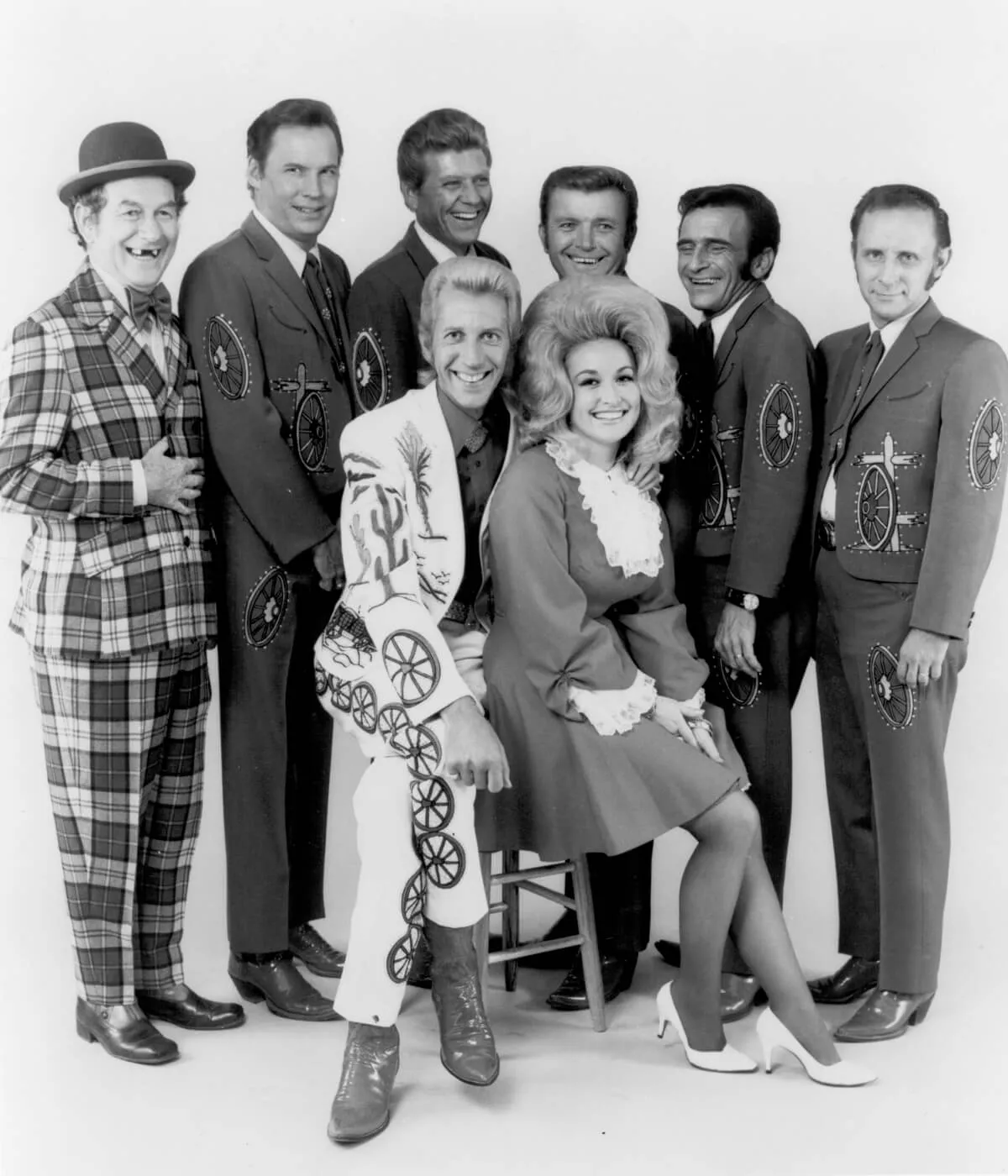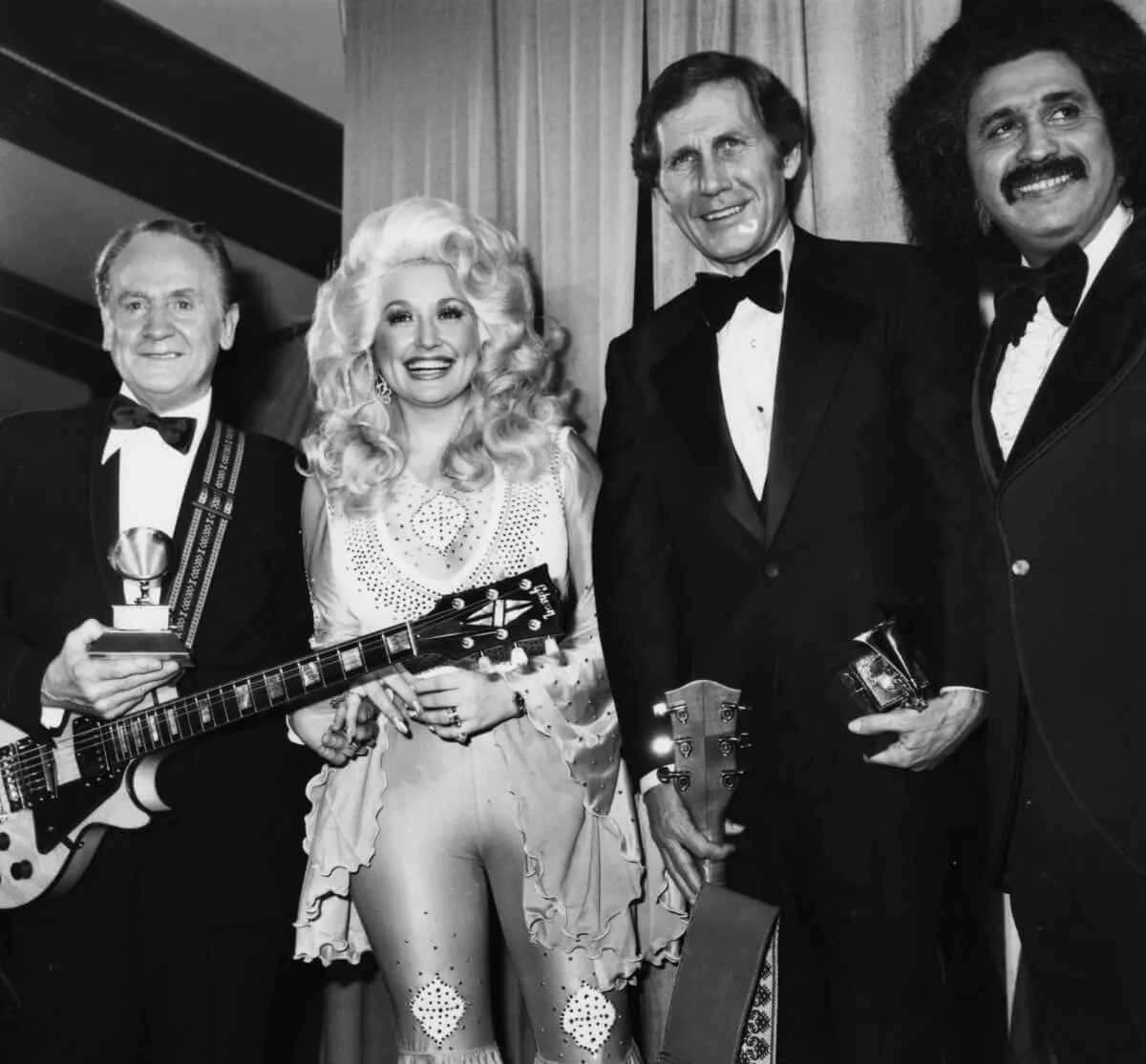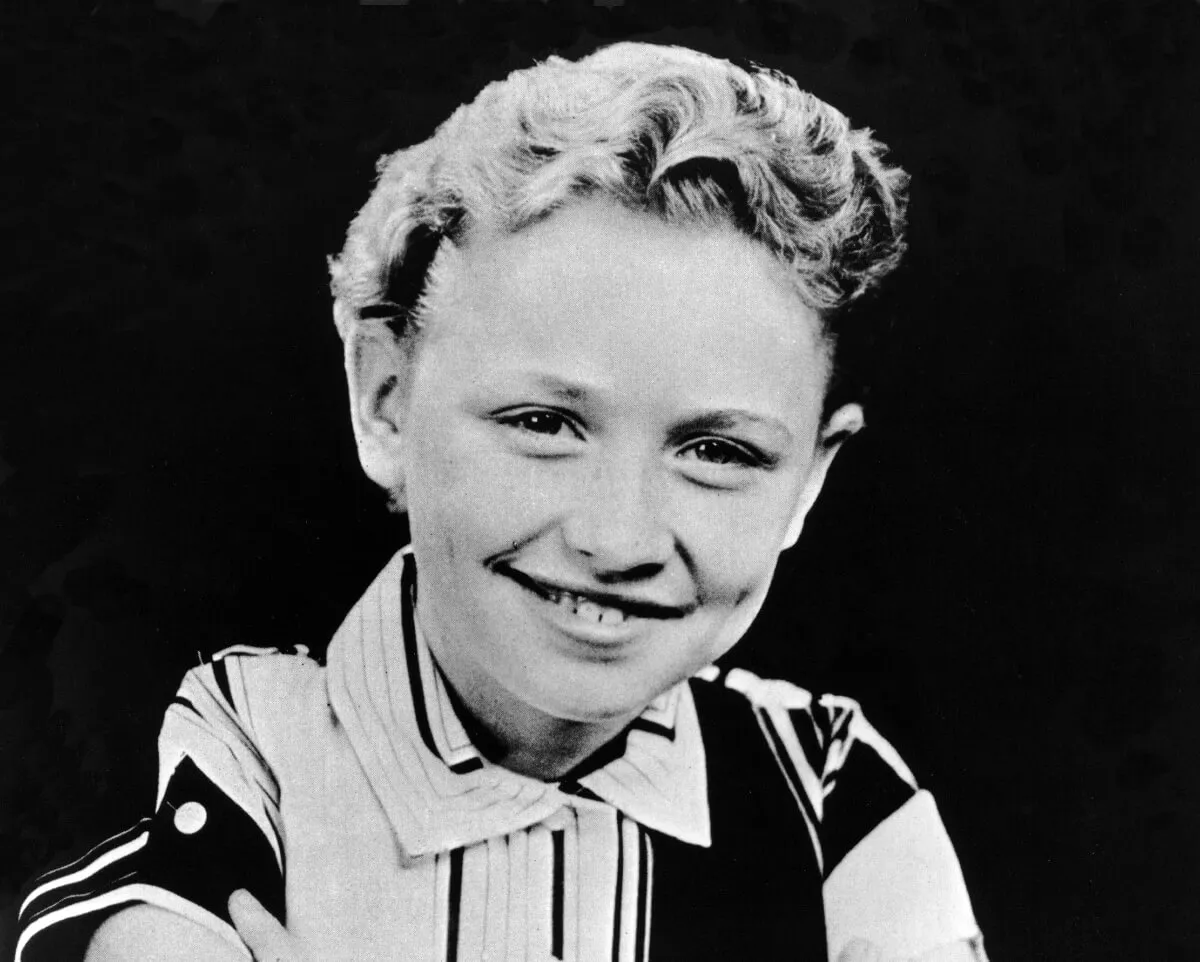
Porter Wagoner Took a Major Financial Risk to Get Dolly Parton a Record Deal
When Porter Wagoner and Dolly Parton started working together, he wanted her to sign to his record label, RCA. The head of the label in Nashville didn’t think this was a good idea, not believing Parton had the vocal talent to make it. Wagoner insisted, though. He even took a major financial risk in order to help Parton’s career.
Porter Wagoner wanted Dolly Parton to sign with his label
After Parton joined Wagoner’s television program, The Porter Wagoner Show, he wanted to get her signed to the same label as him. Chet Atkins, the head of RCA in Nashville, had concerns.
“This girl just can’t sing,” Atkins reportedly told Wagoner, per the book Dolly: The Biography by Alanna Nash. “I don’t think she’d sell, because she just cannot sing.”
Wagoner was insistent, however. He told Atkins that if Parton was a disaster for the label, they could take losses out of his royalties.

“Well, I’ll tell you what,” Wagoner said. “You take out of my royalties what she loses this year because I believe she can sing, and that she’ll make it.”
It was a risk, but it paid off with no harm to Wagoner’s royalties. Parton’s first single with RCA, “Just Because I’m a Woman,” hit No. 1 and sold 150,000 copies.
“Porter’s a man I have great respect for,” Parton said in 1975, adding, “He gave me a chance. He believed in me, when a lot of people didn’t, because of my unique sound. He believed that I had a lot of potential, that it could be almost like a gimmick. That I could catch on.”
Porter Wagoner was reportedly used to getting things his way while working with Dolly Parton
Wagoner went on to work with Parton until the mid-1970s. He was used to getting his way in their collaboration, just as he had with Atkins.
“Porter had his ideas, because he was the producer,” guitarist Tom Rutledge said. “And I guess most of the time he would win out, mostly through intimidation, because of the type of personality he is.”
He controlled so much of her career that it began to feel stifling to Parton.
“Four years ago, Porter was controlling Dolly’s whole career, determining what was recorded and what wasn’t, how it was recorded. It’s incredible,” Rutledge said. “That whole thing with Porter is a can of worms. The whole last three or four years were bad for Dolly. It was just a high-pressured gig for the people who worked for him, and a real depressing situation for Dolly.”
She shared how she spoke with Chet Atkins afterward
While Atkins didn’t like Parton’s voice at first, he warmed to it. They even collaborated several times, including on the 1976 song “Do I Ever Cross Your Mind.” She came to tease him about his early opinion of her.

“I kid Chet a lot,” she said. “Every time I go in to sing something for him, I’ll say, ‘Now I know I can’t sing, Chet, but I’ve got something I want you to hear.’ Just joking with him. Of course, now Chet is the biggest fan I have in Nashville. I just didn’t catch his ear [at first].”


